第42章 The Campaign Of Santiago De Cuba (4)
The Secretary of War then hit upon the really happy though quite unmilitary device of offering, in return for unconditional surrender, to transport the Spanish troops, at once and without parole, back to their own country.Secretary Alger was no unskillful politician, and he was right in believing that this device, though unconventional, would make a strong appeal to an army three years away from home and with dwindling hopes of ever seeing Spain again.On the 15th of July a capitulation was agreed upon, and the terms of surrender included not only the troops in Santiago but all those in that military district--about twenty-four thousand men, with cannon, rifles, ammunition, rations, and other military supplies.Shafter's recommendation that the troops be allowed to carry their arms back to Spain with them was properly refused by the War Department.Arrangements were made for Spanish ships paid by the United States to take the men immediately to Spain.This extraordinary operation was begun on the 8th of August, while the war was still in progress, and was accomplished before peace was established.
The Santiago campaign, like the Mexican War, was fought chiefly by regulars.The Rough Riders and the Seventy-first New York Regiment were the only volunteer units to take a heavy share.Yet the absence of effective staff management was so marked that, as compared with the professional accuracy shown by the navy, the whole campaign on land appears as an amateur undertaking.But the individual character of both volunteers and regulars was high.
The American victory was fundamentally due to the fighting spirit of the men and to the individual initiative of the line and field officers.
In the meantime the health of the American Army was causing grave concern to its more observant leaders.Six weeks of Cuban climate had taken out of the army all that exuberant energy which it had brought with it from the north.The army had accomplished its purpose only at the complete sacrifice of its fighting strength.
Had the Spanish commander possessed more nerve and held out a little longer, he might well have seen his victorious enemies wither before his eyes, as the British had before Cartagena in 1741.On the 3d of August a large number of the officers of the Santiago army, including Generals Wheeler, Sumner, and Lawton, and Colonel Roosevelt, addressed a round robin to General Shafter on the alarming condition of the army.Its substance is indicated in the following sentences: "This army must be moved at once or it will perish.As an army it can be safely moved now.Persons responsible for preventing such a move will be responsible for the unnecessary loss of many thousands of lives." Already on the 1st of August, General Shafter had reported 4255 sick, of whom 3164 were cases of yellow fever, that deadly curse of Cuba, which the lack of proper quarantine had so often allowed to invade the shores of the United States.On the 3d of August, even before General Shafter had received the round robin, the Secretary of War authorized the withdrawal of at least a portion of the army, which was to be replaced by supposedly immune regiments.By the middle of August, the soldiers began to arrive at Camp Wikoff at Montauk Point, on the eastern end of Long Island.Through this camp, which had been hastily put into condition to receive them, there passed about thirty-five thousand soldiers, of whom twenty thousand were sick.When the public saw those who a few weeks before had been healthy and rollicking American boys, now mere skeletons, borne helpless in stretchers and looking old and shriveled, a wave of righteous indignation against Secretary Alger swept over the country, and eventually accomplished enough to prevent such catastrophes in the future.
The distressing experience of the army was too real not to have its constructive effect.Men like William Crawford Gorgas were inspired to study the sanitation and the diseases of the tropics and have now made it possible for white men to live there safely.